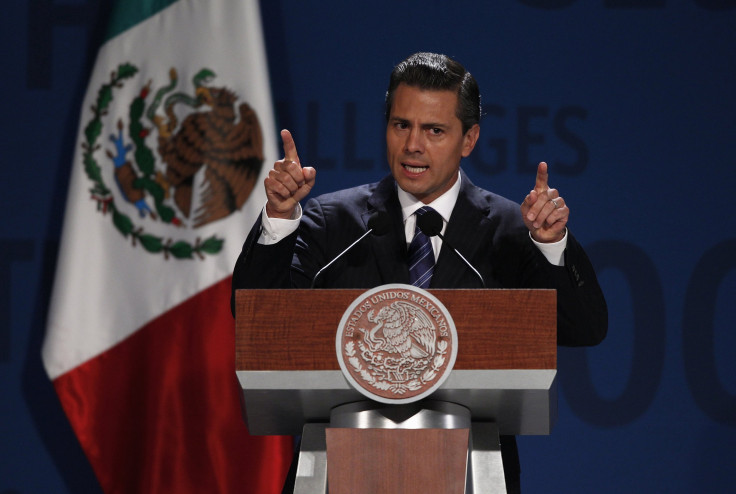
Since entering office in Dec. 2012, Mexican President Enrique Peña Nieto has set about pushing through an ambitious agenda of reforms he and his Institutional Revolutionary Party (PRI) -- which for much of the country's history has exercised near-total control of its politics -- say will "modernize" Mexico's civic and economic life. The "Pact for Mexico", a consensus brokered in vague terms on the need for reforms with the two other main political parties, has since dissolved, but in just a single year, Peña Nieto has been able to pass six important reforms. Check them out below.
1. Energy: Three articles of the Mexican Constitution were amended on Dec. 12, opening the country's energy reserves to private investment for the first time since 1938, when then-president Lázaro Cárdenas booted Standard Oil and Royal Dutch Shell from the country after they refused to abide by a court's decision on a labor dispute. Foreign oil firms can now enter into partnerships to exploit huge shale and deep-water reserves and, most significantly, win licenses to do so. The leftist Party of the Democratic Revolution (PRD) broke with the Pact for Mexico because of this reform, and promises a public referendum on it. They say the licenses amount to concessions which will again put Mexican energy - and the third of the government budget which comes from it -- under the thumb of foreign interests.
2. Political: Federal and local congressmen, senators and mayors will now be able to run for reelection - senators can do it once, while federal lawmakers can do it three times, all of this excluding those currently in office, according to the Americas Society. It also reserves at least 50 percent of congressional candidacies for women.
3. Education: Tens of thousands of teachers from across Mexico -- many of them from the country's poorest states -- descended upon the capital to protest this reform, which will take the hiring, evaluating and promoting teachers out of the hands of teachers' unions and establish national standards for doing so. It also mandates that teachers pass standardized tests in order to get hired and stay hired or be promoted.
4. Tax: This made the news for imposing, among other taxes, a Bloomberg-style tax on soft drinks, but it is largely toothless. Peña Nieto and supporters of the reform had sought to boost government revenue from taxes, which are now only 10 percent, but after a series of concessions to the conservative Party of National Action (PAN), it only raises it by about 1 percent.
5. Banking: This hasn't been passed yet, but the Senate did pass an outline for it in late November. It would try to make Mexico's fiscally conservative banks more willing to lend by making it easier for them to collect on guarantees for bad loans, as well as increase the government's regulatory power over financial firms.
6. Telecommunications: Back in June, this reform created a two new, autonomous regulators to oversee a telecommunications industry dominated by the holdings of Carlos Slim. The cost of phone use in Mexico is the highest in Latin America. The Americas Society writes that the Federal Institute of Telecommunications (Ifetel), will have the power to revoke operating licenses for companies with monopolistic practices, while the Federal Commission of Economic Competition will try to keep companies from getting ahold of more than 50 percent of the market share.
© 2025 Latin Times. All rights reserved. Do not reproduce without permission.




